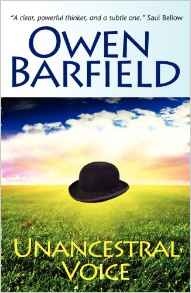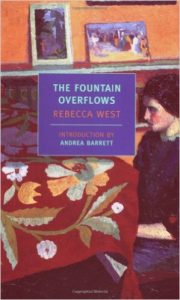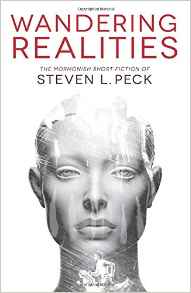Here’s the thing about fiction: whether you are reading it or writing it, it blasts you out of this world into another one, and you can’t remain convinced, once you’ve encountered that, that any world is the one true thing. I wonder, incidentally, what “the thing about music” is, or “the thing about dance.” They have to do respectively with time and movement, I know that, but because I don’t compose either of those art forms, I’m not sure they do what fiction (reading or writing) does to me, which is this: It makes me pretty sure there’s no “one true” anything.
Now, I’m also convinced that dream and memory are related. Both sets of images occur in the same deep crevices of my mind and brain, where they draw on input from my senses as well as from my emotional states to manifest experiences unlike anything I’ve ever done in waking life but that feel like truth. When I was studying energy and consciousness for personal growth, I was told, “you co-create your own reality.” It meant, nothing that happens to you comes solely from outside. As within, so without. You are certainly not a merely internal flux. Not while you’re on this planet, not while you’re in this sphere of existence. The outside and the inside together constitute “the real.”
 Owen Barfield, a lesser-known but hardly lesser-brilliant Inkling whose influence on C.S. Lewis is only beginning to be acknowledged (see, for example, Thorson), writes in his illuminating philosophical novel Unancestral Voice that “the interior is anterior” (p. 11 and throughout). Now, Barfield’s signature concept is the evolution of consciousness. A student of Rudolf Steiner, Barfield wrote extensively and beautifully that the unfolding of human history, including our language, demonstrates an arc away from what he called “participation,” by which he meant a unified state of reciprocal being and doing taking place always and at once between humans and nature, each other, matter, and the immaterial. All that is in earth once “participated” together, but the history of language itself shows how starkly it has separated, and how profoundly we are reaching, reaching, toward what Barfield terms “final participation,” that is, consciously-chosen reciprocal doing and being — in short, redemption.
Owen Barfield, a lesser-known but hardly lesser-brilliant Inkling whose influence on C.S. Lewis is only beginning to be acknowledged (see, for example, Thorson), writes in his illuminating philosophical novel Unancestral Voice that “the interior is anterior” (p. 11 and throughout). Now, Barfield’s signature concept is the evolution of consciousness. A student of Rudolf Steiner, Barfield wrote extensively and beautifully that the unfolding of human history, including our language, demonstrates an arc away from what he called “participation,” by which he meant a unified state of reciprocal being and doing taking place always and at once between humans and nature, each other, matter, and the immaterial. All that is in earth once “participated” together, but the history of language itself shows how starkly it has separated, and how profoundly we are reaching, reaching, toward what Barfield terms “final participation,” that is, consciously-chosen reciprocal doing and being — in short, redemption.
I have translated Barfield’s rich philosophy into Mormon notions of the Fall, and have traced similarities between his joyful discussions of the meaning of Christ’s Incarnation and Mormon concepts of “godbodiedness” and atonement. I bring all this up only to suggest that when Barfield says “the interior is anterior,” he means (as I do) that dreams and memory are not separate from, but anterior — previous, in both space and time — to our commonly experienced, scientifically quantified, “separated” reality. In “real” reality, what is in our minds and what is outside them have a delicate reciprocal relationship. Wisdom acknowledges, cultivates, seeks to nurture this relationship, to reap good fruit from and with it. “Participation” is as much the fiction writer’s aim as “co-creation.” Memory, dream, and reality co-create each other. Literature — fiction — has an indispensable place in this process.
In case it’s not obvious where I’m going with this, let me try to say it plainly: fiction is a manifestation, and a furthering, of mind. It both reflects and hastens the evolution of consciousness. Everyone knows John Gardner’s equation: a novel is a vivid and continuous dream. Whatever interrupts that dream is best edited out of the novel’s drafts. (The power of editing to create both a better draft and a better writer is a truth universally acknowledged, I know. Maybe I’ll write more about that here in the future.) Jonathan Langford said at A Motley Vision in a comment to Sarah Dunster that “the way [to fiction that is unapologetically LDS, yet available to a general audience] will be shown less by manifesto and more by individual Mormon artists doing what comes naturally to them as they honor both their art and their Mormonism” (August 1, 2016). Now, occasionally in my fiction workshops (and nonfiction too) I require students to compose their personal writing manifestos, because I think becoming conscious of their motives and first principles can directly positively affect their work. But I like Langford’s point. Manifesto is not mandate, or shouldn’t be. And fiction by or about Mormons that expands human consciousness will not come about by mandate but by our  manifesting, through language, the possibilities in our dreams and memories, the realities of our minds.
manifesting, through language, the possibilities in our dreams and memories, the realities of our minds.
I need others’ minds in my life: Rebecca West’s The Fountain Overflows, which embeds me in a family of artists I want to know, siblings and parents who love each other and judge the world wryly against their own ironic visions as I’d like to think I could do, given the company. Alan Garner’s Red Shift, in which I have to piece together retroactively, from fragmented scenes of mystery, loss, and desire, the connections between three wildly various worlds, just as I must piece together fragments of my own. Harry Potter — who hasn’t marveled at Rowling’s world, as complete in its astonishing way as Middle Earth? Steven Peck’s wild alternative Mormon futures. Yours.
 Well, and while we’re talking like this, let’s admit it’s not just fiction that performs this magic. Leaving poetry aside for the moment, let’s consider such nonfiction as Walter Wink’s interpretations of Jesus’s teachings, which enlarge my sense of what Jesus was all about as much as, and in some cases more than, Deseret Book homilies. My teacher Lansing Barrett Gresham’s reality, where energy is palpable through muscle and movement, so that mental states and physical wellness can be traced and changed in and through each other, makes as much sense to me as any pharmaceutical explanation of human health. Why not? Their saying so is not a mandate. You don’t have to believe it. To say a book is “true” is an odd comment, imho. You and I know: “truth” isn’t “fact.” The song says it’s “the sum of existence,” and you who read and write fiction know, by your dreams and memories, that that sum has hardly been reached. What we read, and also, at its best, what we write, swells the world, swells the bounds of evolving human consciousness, swells the capacities of the brain and mind. “Reality” is co-created. Enlarged. Made more true.
Well, and while we’re talking like this, let’s admit it’s not just fiction that performs this magic. Leaving poetry aside for the moment, let’s consider such nonfiction as Walter Wink’s interpretations of Jesus’s teachings, which enlarge my sense of what Jesus was all about as much as, and in some cases more than, Deseret Book homilies. My teacher Lansing Barrett Gresham’s reality, where energy is palpable through muscle and movement, so that mental states and physical wellness can be traced and changed in and through each other, makes as much sense to me as any pharmaceutical explanation of human health. Why not? Their saying so is not a mandate. You don’t have to believe it. To say a book is “true” is an odd comment, imho. You and I know: “truth” isn’t “fact.” The song says it’s “the sum of existence,” and you who read and write fiction know, by your dreams and memories, that that sum has hardly been reached. What we read, and also, at its best, what we write, swells the world, swells the bounds of evolving human consciousness, swells the capacities of the brain and mind. “Reality” is co-created. Enlarged. Made more true.
Because Mormon culture makes an idol of “the truth,” “the one true thing,” “the most true book,” I think those of us who write fiction do need to manifest our conviction of its limitless value in the ever-expanding evolution of human consciousness, even if we don’t make manifestos about it. I confess I’ve never had much trouble with the thought that the scriptures are human-made. The idea doesn’t threaten me in the least. They were (are) written, by someone(s) who knew language devices: ellipsis and image, syntax and symbol, juxtaposition and plot. Language is our gift, one of the (if not the) most astonishing gifts to humans, a medium in which to embody realities behind and beneath the “real.” There’s enormous value, imho, in thinking of scripture in the same way I think of all literature, whether as reader or writer: consciously composed, linguistically-aware stories that blast apart the potential complacency of this separated, scientific world. If I let scripture or fiction work on me with an open heart, my reality can be changed. I want this — I need it — in my ever-evolving life.
So maybe this is a bit of a manifesto for today: It is needed that we makers of Mormon fiction manifest the widest possible range of potentiality in this, our astonishing anterior-interior world. Our participation is needed in the activity of crafting novels, plays, stories, performances on the stage or in the mind. It is needed that we co-create: New wisdoms. New experiences. Knowledge. Truth.
Let’s all keep writing.
Works referenced in this post:
Barfield, Owen. Unancestral Voice. Oxford: Barfield Press 2010. www.owenbarfield.org
— . History in English Words. Lindisfarne Press 2002.
Garner, Alan. Red Shift. New York: New York Review of Books 2011.
Gresham, Lansing Barrett and Julie J. Nichols. Ask Anything, and Your Body Will Answer. NoneTooSoon Publishing 2002. www.inawareness.com \
Langford, Jonathan. http://www.motleyvision.org/2016/taking-our-stories-to-a-general-audience-a-review-of-the-librarian-shoots-a-gun-by-amber-gilchrist/
Nichols, Julie J. “Godbodied: Barfieldian, Steinerian and Mormon Notions of the Relation Between the Divine and the Human” ”: a presentation at the Barfield Society session of the Conference of the Rocky Mountain Modern Language Association in Boulder, CO October 11, 2012.
Peck, Steven. Wandering Realities: Mormonish Short Fiction. Zarahemla Books 2015.
Rowling, J.K. Harry Potter… Scholastic 1998 +
Thorson, Stephen. Joy and Poetic Imagination: Understanding C. S. Lewis’s “Great War” with Owen Barfield and its Significance for Lewis’s Conversion and Writings. Winged Lion Press 2015.
West, Rebecca. The Fountain Overflows. New York Review of Books 2002.

I like your manifesto, which I will grossly oversimplify as stating that both the writing and the (participatory) reading of fiction is (or can be) a pursuit of truth, and one that is particularly (perhaps uniquely) suited to helping us explore certain aspects of truth. I like it because I think it’s broad enough to provide a space for many of the different reasons why we write and read, and many of the different types of writing and reading we do, and because it captures the sense I get from writers of all stripes that our fictions do in fact have something to do with truth (though it’s a claim we tend to make only quietly if at all when outside the company of like-minded fellows).
Since you cite Barfield and mention Lewis, I can’t help but wonder what (if anything) you make of Tolkien’s allegorical “Leaf by Niggle,” in which he advances the idea that human artists can, through their art and by the grace of God, become co-creators: a bold claim, and one that particularly resonates with me as a Mormon. In fact, I find myself wondering how Tolkien, a Catholic, was the one to come up with such a Mormon idea. Which I suppose only goes to show how limited I can be in my thinking…
Interesting and compelling trains of thought.
Maybe it is my love of fiction, my experience with it…being in so many world’s, being placed in so many pairs of shoes , that makes me reluctant to form universals. Why I’m such an infernally relativistic thinker. It gets me into trouble sometimes, bit is never trade it. Thank you for this.
But I’d…and no apostrophe 🙂
Thanks for these thoughts.
It makes me think about how language and storytelling push our consciousness ahead of what we are capable of in our current reality. Consider how many scientists were inspired by science fiction and its imaginary worlds before they got into hard sciences. First comes the vision, the imagination, and then the reality follows. I’ve wondered about this with scripture, that their purpose isn’t so much to tell us what happened, but what is possible.